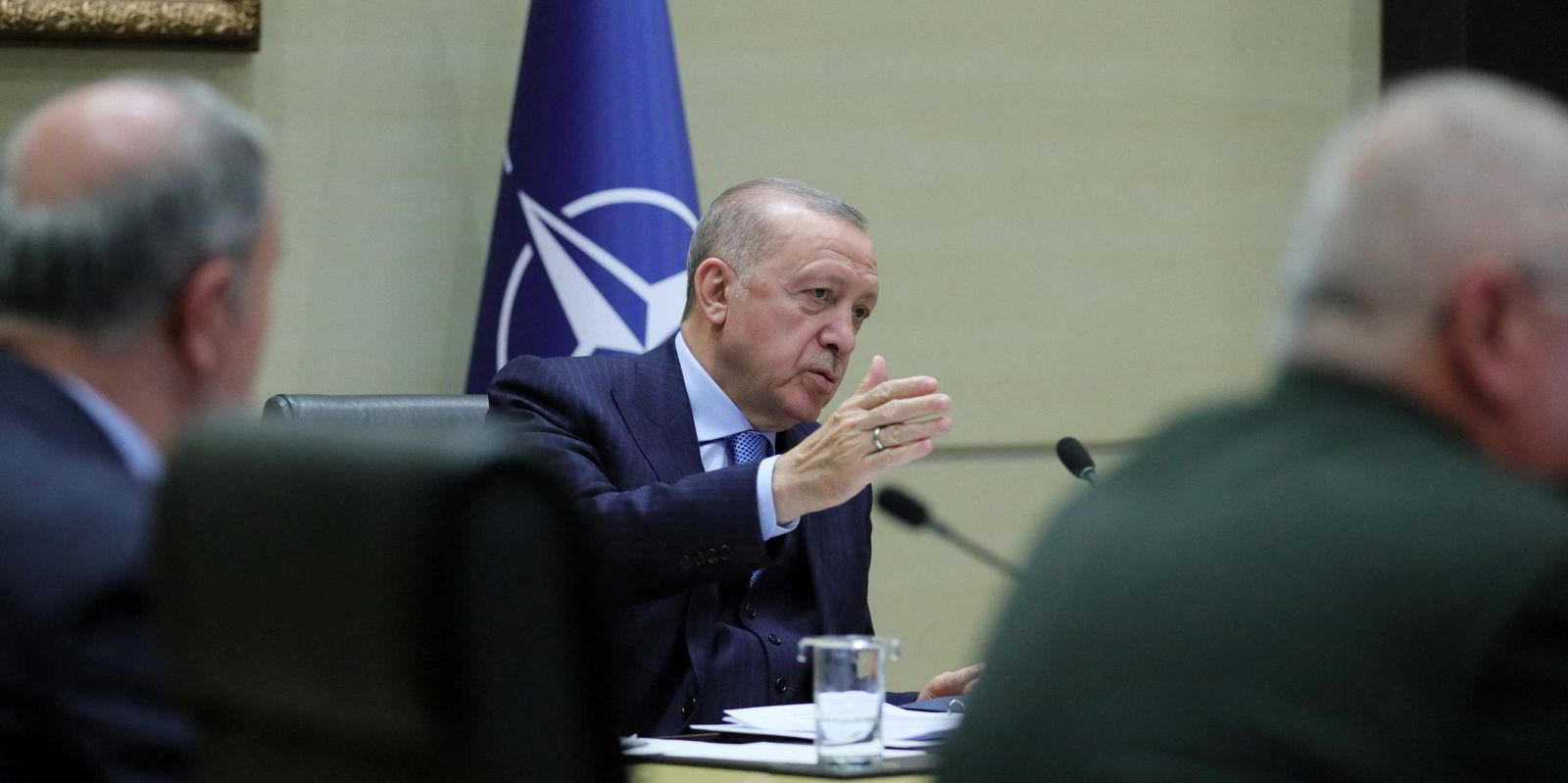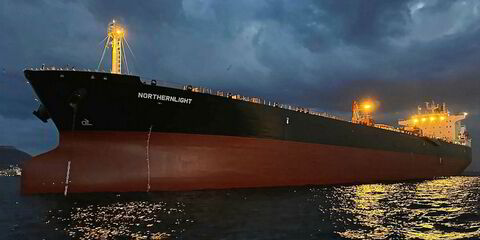Turkey on Monday activated powers under an international treaty that allows it to effectively block Russian warships from crossing the Bosphorus.
TradeWinds reporters across the globe are covering the shipping implications on the Russia-Ukraine crisis.
The move comes one day after Turkish foreign minister Mevlut Cavusoglu formally labelled the Ukraine conflict as a war.
That opened the way for the government in Ankara to invoke article 19 of the 1936 Montreux Convention Regarding the Regime of the Straits, the international treaty that governs ship traffic through the Turkish Straits and allows Turkey to restrict moves of belligerent war vessels.
“We have decided to use the authority given to us by the Montreux [Convention] regarding the ship traffic in the straits in a way that will prevent the crisis from escalating,” Turkish president Recep Tayyip Erdogan said in a televised speech.
Under the Montreux Convention, Erdogan’s move means belligerent warships are henceforth allowed to pass the straits only once, to return to their bases.
Turkey took the step a week after Ukraine's beleaguered government asked it to block Russian ship moves through the Turkish Straits as a reprisal to Russia’s invasion of Ukraine.
After a telephone conversation with Erdogan on Saturday, Ukrainian president Volodymyr Zelenskyy tweeted that Turkey would block Russian war vessels. Erdogan did not officially confirm Zelenskyy's tweet at the time.
Turkey's move isn’t expected to directly affect merchant shipping.
Under the Montreux Convention, commercial vessels enjoy almost complete freedom of passage and navigation in the straits — even when Turkey itself is at war or considers itself to be imminently threatened by war.
Turkey may only block merchant vessels that belong to, or assist, a state that Turkey considers a direct enemy.
Read more
- UK ports directed to turn away Russian ship as Sovcomflot tanker raises hackles in Scotland
- Russia’s Fesco pulling sanctioned ships from blacklisted lessor
- Ukraine UN ambassador accuses Russia of Black Sea ship attacks
- Spot VLGCs lose 61% in a month as Ukrainian uncertainty takes a toll
- Okeanis predicts negative tanker fleet growth if Iran sanctions lifted



